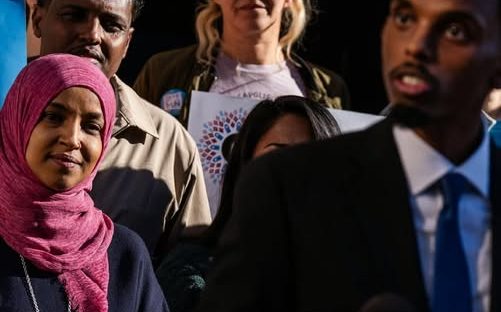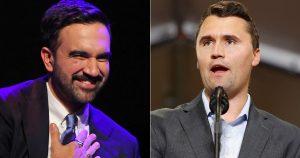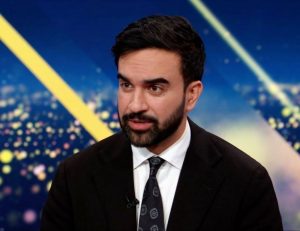Introduction
Minneapolis faces an uncertain political future as the mayoral race remains too close to call. Incumbent Mayor Jacob Frey currently leads with 42% of first-choice votes. However, progressive challenger State Senator Omar Fateh follows closely with 32%. Ranked-choice voting in the city means the outcome will not be clear until second- and third-choice votes are tallied.
Voters, city officials, and political analysts alike are holding their breath. The results could redefine Minneapolis’ political landscape for years to come.
Frey Holds a Narrow Lead
On election night, Mayor Frey struck a confident tone. “We got what appears to be record turnout, and I’ll tell you what—it looks damn good for us,” he told supporters. He did not, however, declare victory.
Frey’s first-choice vote count gives him a 10-point lead over Fateh. But under ranked-choice rules, this edge may not be enough. Voters’ second-choice preferences will play a crucial role in determining the winner.
Fateh Urges Patience Amid Tight Race
Omar Fateh, campaigning on a progressive platform, reminded voters that the race is far from over. “Tonight, we stay patient. We stay proud because this campaign has already changed the conversation for what Minneapolis can be,” Fateh said at his watch party.
Fateh’s campaign gained momentum despite losing the official endorsement of the Democratic-Farmer-Labor Party earlier this year. Party leaders cited concerns about the endorsement process. Fateh’s performance shows that grassroots support can outweigh establishment backing.
Ranked-Choice Voting Keeps the Outcome Uncertain
Minneapolis uses ranked-choice voting for local elections. To win outright, a candidate must receive over 50% of the vote after all rankings are considered. If neither Frey nor Fateh reaches this threshold, further rounds of counting will redistribute votes from lower-ranking candidates.
Fifteen candidates appeared on the ballot, but the spotlight has remained on Frey and Fateh. Long-shot candidates such as pastor DeWayne Davis and attorney Jazz Hampton received 14% and 10% of first-choice votes, respectively. Their supporters’ second-choice preferences could become the deciding factor.
Frey Emphasizes Resilience and Progress
The incumbent stressed Minneapolis’ ability to recover from recent challenges. “The last five years have been heavy, to say the least,” Frey said. “But our city is resilient, persistent, filled with grit, and we’re experiencing this beautiful comeback right now.”
Frey also shared a personal note: his parents recently moved to Minneapolis and voted for him for the first time. This anecdote resonated with supporters and highlighted the mayor’s commitment to family and community.
Key Issues Driving the Race
Both candidates addressed several critical issues throughout the campaign:
-
Housing: Frey emphasized ensuring a foundation of safe, affordable homes. “We’re going to make sure Minneapolis is broadly recognized as the number one housing city in the entire country,” he said.
-
Immigration: Frey strongly defended the city’s sanctuary policies. “President Donald Trump is going to have to come through me and 435,000 other people standing up for undocumented immigrants and our LGBTQ community,” he stated.
-
Community Safety: Frey focused on maintaining safety across all neighborhoods. He promised to invest in equitable services and crime prevention programs citywide.
Fateh focused on progressive solutions, including increasing access to affordable housing, supporting marginalized communities, and reforming public safety. Both candidates’ stances reflect the city’s deep ideological divide and the competing visions for Minneapolis’ future.
Voter Engagement and Community Response
Election night saw record engagement across Minneapolis. Many residents monitored results on their phones, while others shared updates through video calls. The Somali community, in particular, followed the tallies closely, reflecting the city’s diverse electorate.
The high turnout demonstrates a motivated voter base, eager to influence the city’s trajectory. Analysts suggest that the final result may signal whether Minneapolis is trending toward progressive leadership or maintaining its current moderate governance.
The Impact of Ranked-Choice Voting
Minneapolis’ ranked-choice system allows voters to rank multiple candidates in order of preference. This system encourages broader participation and ensures that winners have broad support.
However, the method also introduces uncertainty. A candidate leading in first-choice votes does not always win the election. Analysts emphasize that second- and third-choice votes from lower-ranking candidates could easily flip the race.
For Frey, the challenge is maintaining his lead after redistributing votes from long-shot candidates. For Fateh, the opportunity lies in capturing those redistributed votes to secure an upset victory.
Political Implications
A Frey victory would solidify moderate leadership in Minneapolis, signaling continuity and stability. Conversely, a Fateh win would represent a shift toward progressive governance, potentially influencing policies on housing, public safety, and social equity.
The race also holds national significance. Minneapolis is a major urban center and a bellwether for broader political trends. Progressive gains here could embolden similar movements across other U.S. cities, while a Frey victory would reinforce the viability of moderate leadership in large, diverse cities.
Conclusion
Minneapolis voters, political analysts, and residents await the final tally with anticipation. Every second-choice and third-choice vote could reshape the city’s future. The next few days will be critical in determining whether Mayor Frey continues his leadership or Fateh achieves a historic progressive victory.
Regardless of the outcome, the race has energized communities, sparked debate, and highlighted the importance of civic engagement. Minneapolis stands at a crossroads, and the final result will send ripples through local and national politics.

Emily Johnson is a critically acclaimed essayist and novelist known for her thought-provoking works centered on feminism, women’s rights, and modern relationships. Born and raised in Portland, Oregon, Emily grew up with a deep love of books, often spending her afternoons at her local library. She went on to study literature and gender studies at UCLA, where she became deeply involved in activism and began publishing essays in campus journals. Her debut essay collection, Voices Unbound, struck a chord with readers nationwide for its fearless exploration of gender dynamics, identity, and the challenges faced by women in contemporary society. Emily later transitioned into fiction, writing novels that balance compelling storytelling with social commentary. Her protagonists are often strong, multidimensional women navigating love, ambition, and the struggles of everyday life, making her a favorite among readers who crave authentic, relatable narratives. Critics praise her ability to merge personal intimacy with universal themes. Off the page, Emily is an advocate for women in publishing, leading workshops that encourage young female writers to embrace their voices. She lives in Seattle with her partner and two rescue cats, where she continues to write, teach, and inspire a new generation of storytellers.









